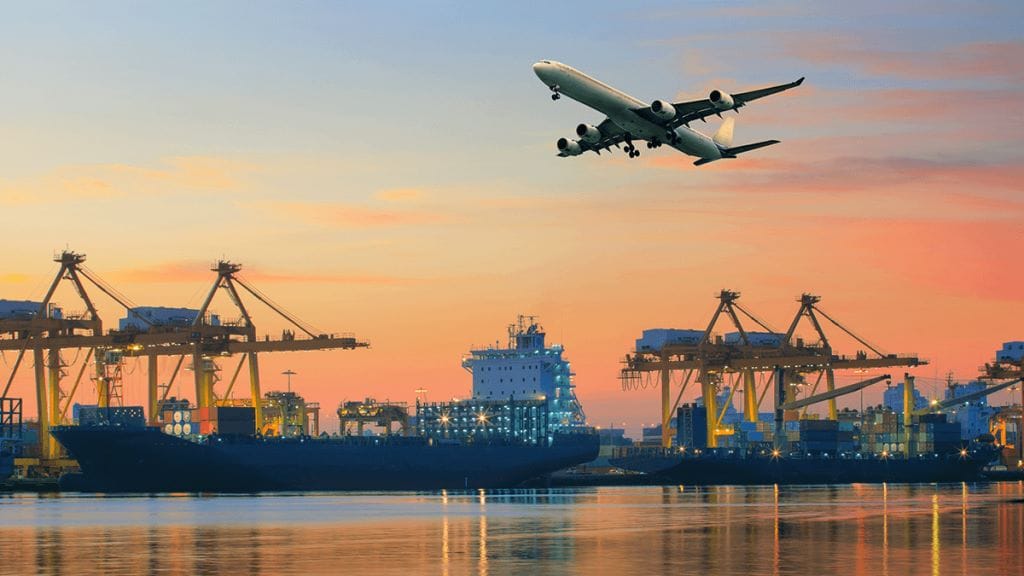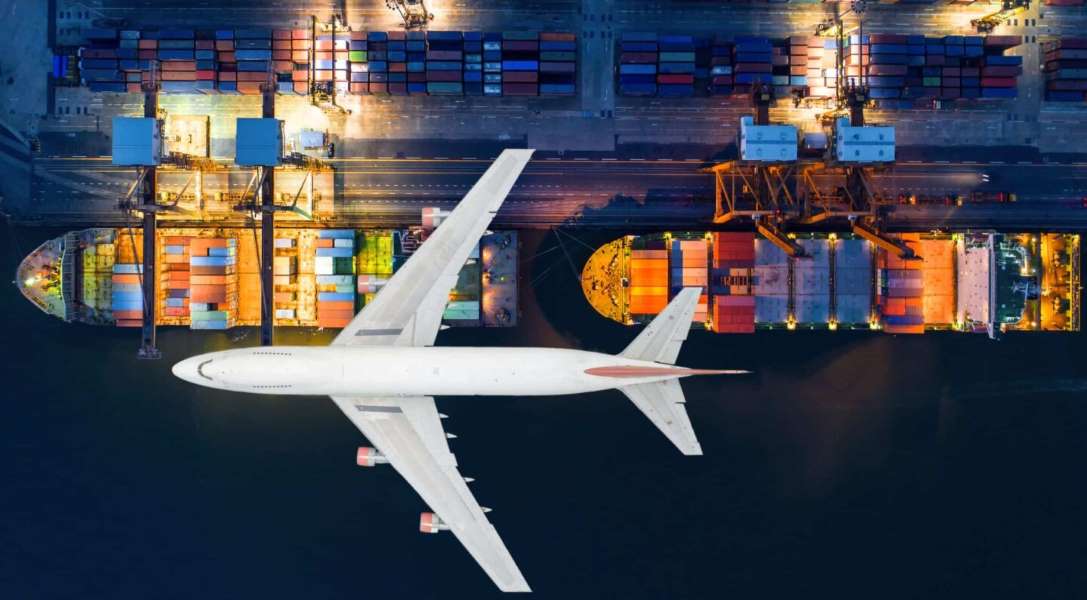As China-Latin America trade continues to heat up, the business ties between China and Cuba are also growing year by year. More and more companies need to transport goods to Cuba. This article will introduce the logistics between the two countries in detail to help companies understand the entire transportation process and plan transportation plans.

Main Modes of Shipping from China to Cuba
Logistics from China to Cuba mainly rely on sea and air transportation. Since Cuba is a Caribbean island country, its port facilities are relatively mature, and sea transportation is the most common mode of transportation. When customers have time-sensitive requirements or the volume of goods is small, air transportation can be selected. The following are the detailed characteristics of the transportation method:
Sea Freight
Sea transportation is one of the most commonly used modes of transportation from China to Cuba. It is especially suitable for transporting bulk goods, heavy equipment and large-volume goods. It has relatively low costs, can carry a large amount of goods, and has a wider range of goods. Dangerous goods and chemicals can also be transported after declaration and special packaging. You can mainly choose between full container load (FCL) and less than container load (LCL):
- FCL: commonly used 20ft, 40ft, 40HQ containers, suitable for large export orders
- LCL: small batches of goods can share containers with others
Major ports:
- Havana Port: Cuba’s largest port, most of the goods are imported and exported from here
- Santiago Port: an important port in the east, second only to Havana Port
Air Freight
Air transport is the fastest mode of transportation, with high security, standardized air transport processes, and a low risk of cargo loss or damage. It is suitable for light, small, and high-value goods, such as electronic components and pharmaceutical products, but there are many cargo restrictions, and dangerous goods, batteries, liquids, etc. usually require special handling. The space is limited and it is not suitable for oversized or heavy cargo transportation.
Major airports
- Jose Martí International Airport: Cuba’s largest international airport, with an air cargo terminal
Why Ship from China to Cuba?
China is one of the world’s leading manufacturers and suppliers of goods, offering a wide range of products from electronics to machinery, apparel, and consumer goods.
As a developing economy in the Caribbean, Cuba has become increasingly reliant on goods imported from China to meet growing consumer demand. Additionally, demand for Chinese goods continues to grow as industries expand and consumer preferences continue to change.
- Cost-effective Products: Shipping from China to Cuba enables Jamaican businesses to obtain high-quality, low-cost products, thereby increasing profitability.
- Diversified Markets: China offers a wide variety of products that can meet the diverse needs of the Cuban market, including building materials, electronics, fashion, and household goods.
- Reliable Shipping Channels: Over the years, shipping routes between China and Cuba have become more efficient, providing businesses with a faster and more reliable way to import goods.
Detailed Process of Shipping from China to Cuba
Here is the detailed process of transporting goods from China to Cuba. Understanding the process will help plan the entire transportation process and better understand the status of the goods:
Choose a reliable freight forwarder
Choose a reputable freight forwarder. They will be responsible for handling logistics and ensure that all processes are carried out efficiently.
Determine the details of the goods
Confirm the type of goods being transported, including size, weight and volume. Accurate cargo details will help the freight forwarder determine the best transportation plan (full container or less than container load) and provide an accurate quotation.
Booking and arranging containers
After the cargo details are confirmed, the freight forwarder will book a container with the shipping company or airline and arrange suitable transportation services
China Customs Clearance
All goods must go through export customs clearance procedures before leaving the country. Necessary documents such as bills of lading, commercial invoices, packing lists and certificates of origin must be submitted. The customs department will inspect the goods and go through export customs clearance procedures.
International transportation
After customs clearance, the container will be loaded on the ship and the goods will be shipped to Cuba by sea. The transit time depends on the port of departure and the ship schedule, usually 30 to 45 days.
Once the cargo is loaded, the transit flight to Cuba usually takes 3 to 7 days. The exact time may vary depending on the specific route and whether the flight is direct or transit.
Arrival in Cuba
Once the cargo arrives in Cuba, it will arrive at the designated port or airport. The freight forwarder will handle the import formalities and work with the customs department to clear customs. Customs clearance is required. You must submit import documents such as bills of lading, commercial invoices and certificates of origin to Jamaican customs. Duties and taxes will be calculated based on the type and value of the cargo.
Final delivery destination
After customs clearance, the cargo will be transported to the final destination by truck or other means according to the transportation agreement (door-to-door service or pick up from the port).
Shipping Cost from China to Cuba
International logistics costs are not fixed. Transportation costs will fluctuate depending on the type of goods, mode of transportation, volume and weight, port of departure/destination, market conditions, etc. The following are the details of the factors:
- Is it the peak season: International logistics prices rise significantly from September to December and around the Spring Festival every year.
- Is it electric/dangerous goods: Batteries, chemicals, etc. require special declarations, prices will rise, and there are many air transportation restrictions.
- Differences in transit country routes: Whether transiting through Europe, America, Hong Kong, etc. affects costs and time.
- Is it including customs clearance and delivery: If DDU/DDP services are provided, it is necessary to calculate Cuban local customs clearance, taxes and last-mile delivery costs.

Sea freight cost range
- Ocean freight: Full container load (FCL) or Less than container load (LCL) freight
- Document fees, port charges: including bill of lading fees, document handling fees, terminal fees, etc.
- Cuba customs clearance & destination port charges: can be arranged by the customer or the local agent
- THC fees: fees for bill exchange and operation at the port
| Departure Port (China) | Transit Port (Cuba) | LCL Shipping Cost | 20ft Container Cost | 40ft Container Cost |
|---|---|---|---|---|
| Shanghai | Havana | $100-$150/CBM | $2850 – $3,450 | $3,400 – $5,750 |
| Shenzhen | Havana | $120-$180/CBM | $2900 – $3,300 | $3,500 – $5,800 |
| Ningbo | Havana | $105-$155/CBM | $2950 – $3,550 | $3,550 – $5,850 |
| Shanghai | Santiago | $105-$155/CBM | $2800 – $3,100 | $3,300 – $5,700 |
| Shenzhen | Santiago | $110-$170/CBM | $2900 – $3,300 | $3,400 – $5,700 |
| Ningbo | Santiago | $100-$150/CBM | $2950 – $3,250 | $3,500 – $5,800 |
Air freight cost range
- International freight: charged by chargeable weight (volume weight or gross weight, whichever is greater), usually quoted in $/kg
- Fuel surcharge (FSC): charged by weight, adjusted by airline
- Security inspection, document fees: airport handling fees, bill of lading fees
- Cuba destination customs clearance fee (if handled by an agent): If the customer needs customs clearance, an additional agency fee will be charged
| Departure Airport (China) | Destination Airport (Cuba) | Cost per kg (USD) |
|---|---|---|
| Shanghai (PVG) | Jose Martí | $5.50 – $9.50 |
| Shenzhen (SZX) | Jose Martí | $6.70 – $8.30 |
| Beijing (PEK) | Jose Martí | $5.80 – $9.60 |
| Guangzhou (CAN) | Jose Martí | $4.60 – $7.40 |
| Hong Kong (HKG) | Jose Martí | $4.50 – $8.20 |
Find out more about shipping costs from China to surrounding areas:
How Much Does it Cost to Ship from China to USA
How Much Does it Cost to Ship from China to Mexico
Customs Clearance of Shipping from China to Cuba
When shipping from China to Cuba, whether by air or sea, import customs clearance is required after arriving at the Port of Havana (or Jose Marti Airport). Cuba’s customs clearance policy is relatively strict. The following are the detailed customs clearance fees and documents:
Customs clearance fees
- Import tariffs: generally 5%-30% of the CIF price, with large differences in different categories;
- Value-added tax: about 13%-15% (some goods are tax-free);
- Port handling fees, inspection fees, storage fees and other additional charges.
Customs clearance documents
- Commercial invoice: must indicate the name of the product, quantity, unit price, total price, country of origin, etc.
- Packing list: clearly specify the size, volume, weight, number of packages, etc. of the goods
- Bill of Lading or Airway Bill (AWB): Transportation documents for sea/air transportation
- Certificate of Origin: helps to enjoy tariff preferences, sometimes mandatory
- Import license (if applicable): must be applied for in advance for certain goods (such as food, medicine, electronic products)
How to Choose Suitable Freight Forwarder
Cuba is a special trade market with strict import policies, unique language and culture, and relatively complex logistics routes. Therefore, choosing a reliable, professional freight forwarding company that is familiar with the Sino-Cuban trade rules is the key to ensuring the smooth, safe and compliant arrival of goods. The following are the key factors for selection:
- Familiar with Cuban customs clearance and policies
- Possess a variety of transportation options
- Provide full-process services (door to door)
- Have stable route resources
- Experience in Latin America and familiar with the Cuban market

Cuba has strict customs clearance procedures and its shipping routes are not as convenient as those of other countries. However, with the price advantage of Made in China and Cuba’s growing market demand, you can find the right freight forwarder, prepare documents, and plan a reasonable route through this article to efficiently and safely deliver goods to Cuba.
